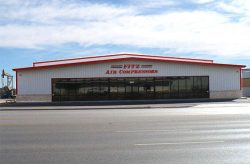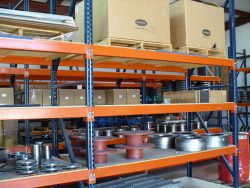How to Select The Right Industrial Air Compressor
Before you go out shopping and choosing an industrial air compressor, it’s essential to examine your needs first because it’s not as simple as you may think. There is a wide range of options offering various motor types, sizes and designs, and features. And, there are many things to take into account.
The two main things to consider are size and features. You want to choose a compressor that will give you the correct capacity and operating pressure with the features vital to getting your job done. The type that is right for your business will depend on how you plan to use it, what tools you will use it with, and your available resources.
Here are a few things to look for when selecting an industrial air compressor:
Type of Work
An important factor in determining the right industrial air compressor will depend on the type of work you will be doing. Will you use it every day or occasionally? Will your demands for compressed air be relatively constant in a day, or will they vary?
Outdoor or Indoor
An outdoor industrial air compressor will need protection from the elements, and an indoor one will require ventilation. Ensure these are all taken into account when setting up the machine.
Pressure
Make sure the pounds per square inch (psi) of your industrial air compressor matches or exceeds the psi requirement of your neediest air tools and pneumatic equipment. Check the manufacturer’s details for all your equipment.
Air Flow
Considering the cubic feet per minute (cfm) reflects the amount of usable air available for work is essential. Cfm is stated in two different forms – piston displacement (pd) or actual cubic feet per minute (acfm).
Horsepower
The higher the horsepower, the more air (cfm) the compressor can produce. Let your cfm and psi requirements determine horsepower for you, don’t just buy the highest horsepower compressor.
Air Tank
Air tanks help eliminate pulsation in the airline and provide storage when demand for air exceeds the capacity of the compressor. A big tank means there is more pressurized air available for output. A small tank means the compressor has to work harder to keep up with demand.
Features
Demanding applications will need:
- Cast-iron construction – for durability
- Minimal moving parts – reduces maintenance
- Splash lubrication – provides reliable design
- Stainless steel finger valves – eliminates corrosion
- One-piece connecting rods – eliminates the need for adjustments
- Oil monitoring device – prevents low oil damage
- Separate cast cylinders in 2-stage compressors – for better cooling
Installation Requirements
The voltage will determine the horsepower capacity available without expensive modifications. Standard voltages for homes (110V) will only operate compressors up to three horsepower. Have an electrician review your requirement before making a purchase.
Control System
All reciprocating industrial air compressors need one of the three control systems:
- Start/Stop: Used where air is not required continually, allowing the compressor enough cooling time. When the system falls below the set start-up pressure, it will automatically start, and when cut-off pressure is reached, it will shut-off.
- Constant Speed: This will keep the compressor from excessively starting and stopping.
- Dual: Allows the compressor to operate in either start/stop mode or constant speed control mode by adjusting the auxiliary valve.
Contact Us Today
If you are looking for advice on choosing an industrial air compressor that is best for your business, contact Fitz Equipment for over 50 years of dependable, fast, and friendly service.
Fitz Industrial Patterns manufactures parts for torque converters and specialty machine parts. Fitz Equipment may have expanded, but one thing hasn’t changed. It is still a family-owned business with a commitment to superior customer service.




